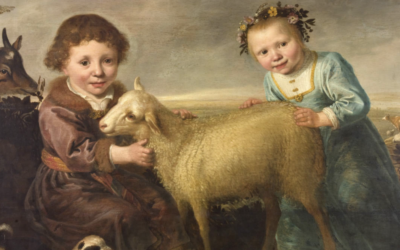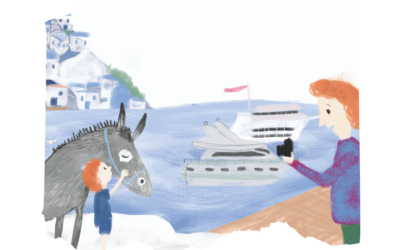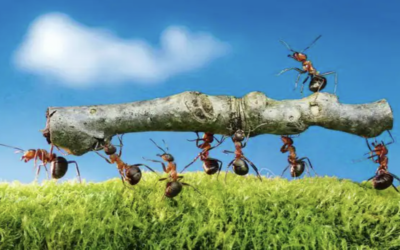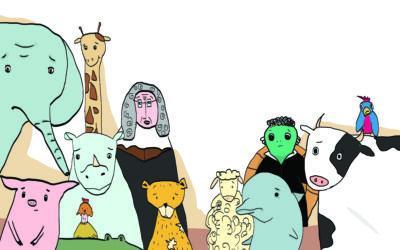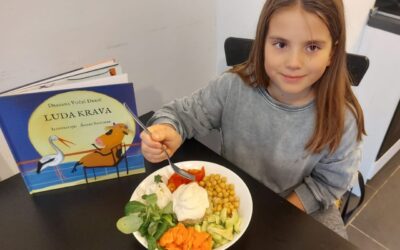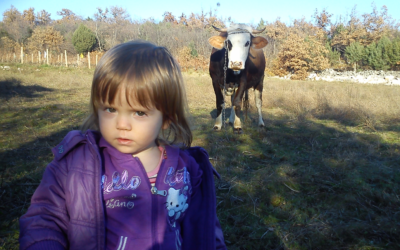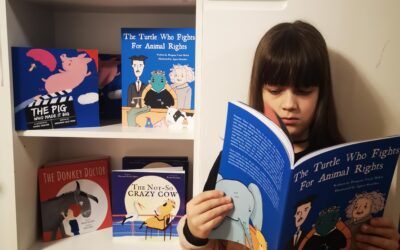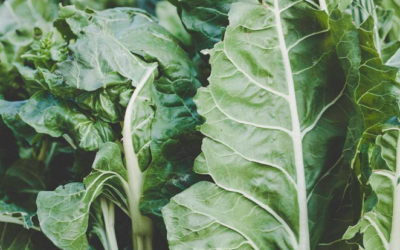Food Choices and Societal Constructs: Exploring Veganism’s Role
The question of whether it is ethical or not to introduce and sustain a vegan diet for children is a highly contentious topic in the realm of vegan nutrition. Let us delve into some fundamental aspects of this subject: the child’s autonomy and the role parents play in making decisions on their behalf, as well as the perspective of scientific research.
Animals in Children’s Literature: Characters, Companions, and Friends
Animals have become integral to various aspects of children’s lives, enriching their experiences and nurturing their imagination. Children are exposed to animals through a wide range of mediums, such as literature, movies, music, and toys. Furthermore, many children have pets, establishing a special bond and fostering a sense of responsibility and companionship.
5 common sense arguments against competition
Critiques of competition have been a topic of discussion in various fields, as some argue that competition is necessary for progress and success, while others suggest that it can have negative impacts on individuals and society. Alfie Kohn, in particular, challenges common arguments that support the idea of competition as necessary, enjoyable, and productive. Kohn’s work encourages us to question assumptions about competition and explore alternative approaches, such as collaboration and cooperation, to achieve success.
Competition: A Question of Social Structure, Not Human Nature
Is competition really necessary for excellence? This popular myth has been debunked by researchers who have shown that the attitudes towards competition differ greatly across cultures. Alfie Kohn, the renowned author of the book “No Contest: The Case Against Competition,” argues that the idea of competition is overrated and harmful.
The ethics behind veganism
People choose to go vegan for many reasons, including health, environmental concerns, and animal welfare. The philosophical underpinning of veganism is rooted in the belief that animals possess inherent worth and value as sentient beings. This belief stems from the idea that animals have the capacity for experiencing pleasure, pain, and a range of emotions, and therefore deserve to be treated with dignity, respect, and compassion.
The relationship between a man and a donkey in the movie “The Banshees of Inisherin”
The relationship between a man and a donkey in the film “The Banshees of Inisherin” showcases several important lessons that we can learn from. One of the key takeaways from this relationship is the value of companionship. The presence of Jenny, the miniature donkey, provides comfort and support to Pádraic, who is facing a difficult situation with his best friend Colm. Jenny follows Pádraic around dutifully and offers him much-needed moments of relief, highlighting the importance of having a trusted companion to lean on during tough times.
Why pigs and cows are just as valuable as dogs and cats?
Speciesism is the belief that some species are inherently more valuable or deserving of moral consideration than others, and is used to justify the exploitation and mistreatment of animals. Just like racism, sexism, and other forms of prejudice, speciesism is a discriminatory belief system that unjustly values one group over another. It perpetuates inequality and violates the basic principles of justice and equality.
Raising a Vegan Child: Balancing Identity and Social Integration
Raising a vegan child often present unique challenges, particularly when it comes to social and peer pressure. It’s true that children often have a strong desire to fit in with their peers, and being a vegan can sometimes make them feel isolated or different. However, it is the role of parents to prepare their children for these situations and help them develop the confidence and communication skills they need to effectively advocate for their beliefs.
An empathetic and ecological view of hunting
Critics argue that hunting is immoral because it requires intentionally causing harm to innocent creatures. Even those who do not believe that animals should have legal rights acknowledge that many animals are sentient, meaning they have the capacity to experience pain. If it is wrong to cause unwanted pain and death to a sentient being, then hunting is also wrong.
How to Talk About Veganism with Non-Vegans?
Communicating the vegan message can be difficult as many non-vegans are defensive about their eating habits. It is important to choose words carefully and be aware of the emotions that can be triggered when talking about veganism. It is important to know when to spread the vegan message and when to avoid it. Family gatherings and hanging out with non-vegan friends is not always the best forum for advocating animal rights.
5 main sources of plant-based protein for vegan children
It is a common misconception that vegans lack protein in their diet, but this belief is not supported by scientific evidence. In fact, many plant-based foods are rich in protein and can easily provide the necessary amount of protein for a healthy diet. This outdated belief likely stems from a lack of knowledge about plant-based protein sources and the belief that animal-based protein is the only source of high-quality protein. Vegan children can get adequate protein from these plant-based foods:
What should children learn in schools about cow’s milk?
The educational system is riddled with contradictions, teaching students that meat and dairy are necessary for a healthy lifestyle while also promoting compassion and care for animals. These conflicting messages make it difficult for students to reconcile the idea of treating animals humanely with the consumption of animal products. In schools, children are often taught that cow’s milk and dairy products are a necessary source of calcium and protein for growth and development. However, this belief is not supported by scientific evidence. Instead of adhering to outdated beliefs, schools should focus on teaching children an ethical attitude towards animals and the harm that consuming milk and milk products can have on both human health and the environment.
How to introduce veganism to preschool-aged children
Talking about veganism with preschool-aged children can be a bit more challenging compared to talking about it with older children or teenagers. This is because, at this age, children are still developing their cognitive and language skills, and may not yet have the capacity to fully understand complex concepts. It is important to talk about veganism with children in an emotionally and intellectually appropriate way.
“Plants are alive and have feelings, so why do you eat them?”
“Plants are alive and have feelings, so why do you eat them?” It’s a question that vegans often hear. Meat eaters often accuse vegans of being hypocritical for consuming plants, arguing that plants are living organisms that have feelings and that it is also wrong to harm or kill them for food. However, this argument misunderstands the ethical considerations that inspire the vegan lifestyle.
Arguments of carnivores dating back to the Old Stone Age
Many of the arguments that meat eaters use to justify their diet choices are based on outdated or inaccurate information. These arguments often stem from traditional beliefs or misconceptions that have been passed down for generations, rather than from scientific evidence. For example, the belief that humans have always been carnivorous or that a diet high in animal protein is necessary for optimal health are not supported by current scientific research.
6 Lessons Children Can Learn from Vegan Picture Books about Pigs
Vegan picture books about pigs can teach children to understand and empathise with the experiences of animals. They can learn that pigs, like all living beings, have emotions and desires, and that they deserve to be treated with kindness and respect. Reading these books can also help children develop a sense of compassion for animals and a desire to help protect them. They may learn that all animals have their own unique personalities and that they are important members of the ecosystem.
What does the cow symbolise in ancient mythology and literature?
The cow is a powerful symbol in literature, representing a wide range of themes and ideas. The symbolic meaning of cows refers to fertility, motherhood, sacrifice, nourishment, generosity and life-giving qualities, and innocence and purity. The appearance of cows in ancient mythology is not only because of the importance they had as domestic animals and sacrificial beings, but also because they appear as teachers on how to behave and think.
Cows in vegan children’s books
Vegan children’s books about cows teach kids that cows are sensitive, social, and intelligent beings, which deserves to be treated with respect and tenderness. These books explain why it’s important to be kind to cows and how eating meat and dairy can hurt them and the environment. Vegan stories with cows as main characters can also inspire kids to make better choices about what they eat.
Artificial intelligence and veganism
Artificial intelligence (AI) does not have emotions or consciousness, and therefore does not have the capacity for empathy. ChatGPT is a model of artificial intelligence that is trained to generate text. In simple words, ChatGTP is a talented and versatile writer. It can write all kinds of texts on any topic. Although it does not have the ability to feel empathy, I gave to Mr. ChatGTP the unusual task: Write a letter to the cows! Mr. ChatGTP wrote the following letter without hesitation:
Should animals have human rights?
Do not judge a person’s character by how he treats those with equal or greater power than his own, but by how he treats the weak, the helpless, whose suffering will pass without consequence. Right and wrong are intellectual and subjective concepts. What is right for one person may be wrong for another and vice versa. Animal’s advocates find that it is objectively wrong to cause suffering to living, sentient creatures that we would never want to experience ourselves.

